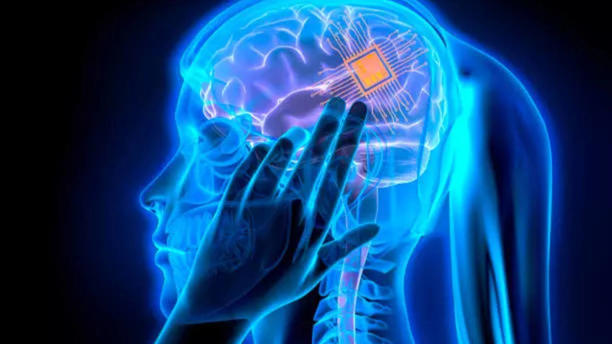Revolutionary Brain Pacemaker Implantation Gives New Hope to Parkinson’s Disease Patients in Delhi

In a groundbreaking medical procedure, doctors at a private hospital in Delhi have successfully implanted a pacemaker into the brain of Savitri Devi, a 51-year-old suffering from Parkinson’s disease for the past nine years. This innovative approach offers her a renewed lease on life, effectively treating her debilitating neurological disorder.
Devi’s journey with Parkinson’s disease began with tremors and bradykinesia, which progressed to rigidity over time. Despite being on medication, her symptoms continued to worsen, severely limiting her mobility and basic daily functions. Complicating matters further, she experienced uncontrollable movements in her limbs, rendering her helpless. Additionally, she began to develop adverse reactions to the medications prescribed.
After a thorough assessment of her condition, doctors at Sir Ganga Ram Hospital recommended a cutting-edge procedure called Deep Brain Stimulation (DBS), often referred to as a “pacemaker for the brain.” Dr. Shrey Jain, Associate Consultant at the hospital’s Neurosurgery Department, explained the procedure’s purpose: “Deep Brain Stimulation involves the targeted stimulation of specific brain areas, functioning much like a pacemaker for the brain. In this case, we focused on stimulating the subthalamic nucleus to control the disease and improve the patient’s overall quality of life.”
He further elaborated on the procedure’s wide range of applications, stating, “DBS has proven particularly beneficial for conditions such as Parkinson’s disease, tremors, and dystonia. It has also shown promising results in the treatment of psychiatric disorders like depression and mania. This minimally invasive surgery is performed while the patient is awake, supported by skilled anesthetists and technicians, along with state-of-the-art equipment.”
During the surgery, electrodes were bilaterally inserted into the deep regions of Devi’s brain through two small skull openings. The accurate placement of these electrodes was confirmed by continuously monitoring the patient’s speech, eye movements, and limb strength. The surgical team ensured that Devi’s symptoms improved to maximize the surgery’s effectiveness and minimize complications. At one point, when Devi temporarily lost her ability to speak, the electrodes were adjusted, immediately restoring her speech. A post-surgery CT scan confirmed the precise positioning of the electrodes, and subsequently, a battery, akin to a pacemaker, was inserted into her chest wall.
Following the surgery, Devi exhibited significant improvement and regained the ability to lead a normal life without experiencing any side effects from the previous medications. Dosage of her medications has been reduced, and their associated side effects are now minimal. Devi’s shaking hands and legs have vastly improved, enabling her to handle objects with ease.
Dr. Ajit K. Sinha, Senior Consultant at the hospital, highlighted the impact of Parkinson’s disease in India, stating, “Over seven million people in India suffer from Parkinson’s disease, which can be debilitating. Deep Brain Stimulation has also shown positive outcomes for other conditions, including tremors, dystonia, depression, OCD, epilepsy, and chronic pain.” Dr. Sinha emphasized the importance of raising awareness about such advanced treatment options to provide individuals facing these challenges with the best opportunity for a normal life.
The successful implementation of DBS in Savitri Devi’s case represents a remarkable milestone in the field of neurology, offering hope to millions of patients worldwide. As medical technology and surgical expertise continue to advance, it is imperative that individuals remain informed about these innovative options, ensuring they have the best chance at leading fulfilling lives despite their conditions.















